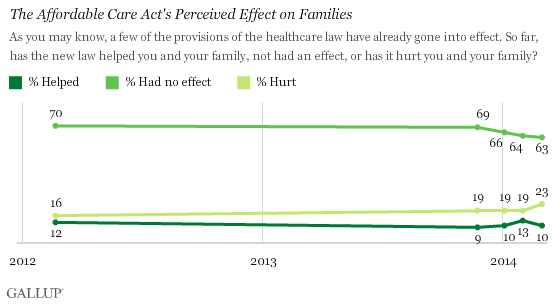Health reform has been a central component of two consecutive election cycles. Republicans were able to give Democrats a “shellacking” in 2010, winning over seats on the premise of repealing PPACA, while the 2012 election served to rebalance and further entrench both parties into their healthcare positions. During these two elections, candidates from both parties have debated ad nauseam over the benefits and pitfalls of the law based largely on hypothetical, projected or simply ideological partisan talking points. However, this election will be the first to have real, concrete examples, which both parties will attempt to use in making their case as health reform continues its implementation.
Since the passage of the PPACA, House Republicans have voted more than forty times to repeal the law. Meanwhile, Democrats have dug their heels in advocating that the law will take time to implement and soon enough everyone will realize the benefits. This election, more so than the 2010 midterms, could be a referendum on the law. Voters will have had the chance to learn how health reform impacts them personally, be it through premium increases, availability of subsidies, narrowed networks or the law’s consumer protections, such as the elimination of pre-ex and guaranteed issue. Unlike in 2010, when the election was still about the hypotheticals of the law, this time it’s real.
The results of the 2014 midterms will have considerable policy effect on how health reform moves forward, both at the federal and the state levels. Federally, a divided Congress with the Senate controlled by Democrats and the House controlled by Republicans, has stalled most efforts to bring meaningful reform to the law since its passage. But should the Senate flip to Republican control, the Administration will have a much more difficult time shutting down congressional opposition. At the state-level, many governors first elected in 2010 on the basis of their opposition to the law will face their first re-elections. Many of these have been loyal to the opposition to the point of refusing to implement any component of PPACA that they are able to control, from defaulting to federally facilitated marketplaces or refusing the Medicaid expansion. For the first time, voters will have a say in whether they want to continue this opposition or move towards a greater expansion of the law.


